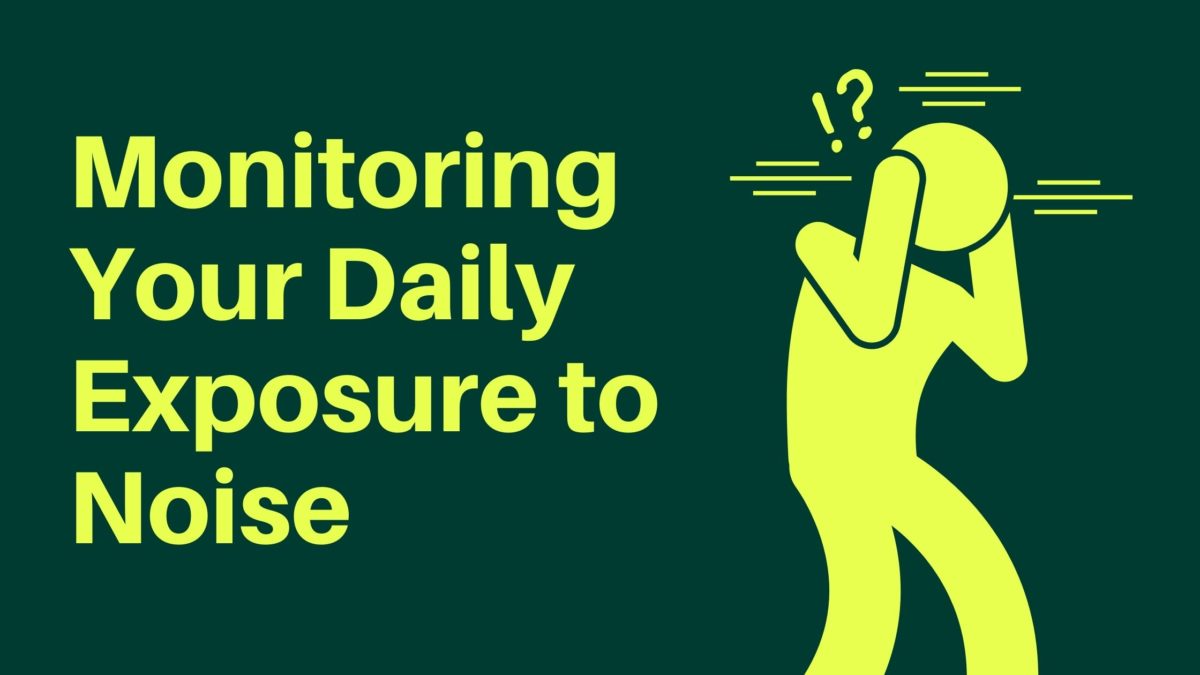
Monitoring Your Daily Exposure to Noise
While the most common cause of hearing loss is age, a younger population is experiencing hearing loss at a higher rate than ever before. This is due to a world which is becoming noisier and noisier. Noise induced hearing loss occurs due to dangerous levels of sound and the more aware you are of when you may be at risk, the more you can do to protect yourself.
Noise Induced Hearing Loss
Noise Induced Hearing Loss occurs when the tiny hair-like cells, called stereocilia are damaged due to a high volume of noise. Stereocilia sends audio information from the inner ear to the brain, making it difficult for people to process and respond to conversations and sounds around them. Sound is measured in decibels and any decibel which rises above 85 decibel can damage the stereocilia. The higher the decibel level, the less time it takes for damage to occur. For instance when a person is exposed to a decibel level of 85dB while working in a factory setting, it can take years for hearing loss to occur. However, if you are exposed to a blast such as an explosion or gunshot, the decibel may reach anywhere between 140 and 165 decibels and can damage hearing significantly in a matter of seconds.
Daily Noise Exposure
Understanding your daily routine can help you prepare for protecting your hearing when it may be put in risk. Of course it is difficult to anticipate all instances of noise you’ll encounter, but in general, most people have a fairly predictable list of places they go throughout the week. Understanding the decibel levels in the places you frequent most can help you know when it may be appropriate to wear earplugs to prevent damage. Daily noise exposure is a way of measuring the decibel level and amount of time you are exposed daily. There are apps available on most Smartphones which allow you to measure the decibel level of any space you frequent. Try measuring the decibel level in that space, several times a day to make sure you are getting an accurate reason. If the decibel level is on average 85dB or higher than it is important to understand that to stay within the recommended daily noise exposure, you can listen to sounds at 85 dB for 8 hours. As the decibel level rises to 88dB the amount of time of safe exposure is only 4 hours.
Preventing Hearing loss
Noise related hearing loss is permanent. The more you can do to actively prevent damage will be imperative to your mental, physical and emotional health later on. Even for those under the age of 50, hearing loss can still impact cognitive ability and personal relationships, early on in its development. Wearing earplugs and earmuffs, in potentially damaging environments, can help prevent the issue before it begins by lowering the ambient decibel level of a space by anywhere from 15 to 33 decibels. OSHA mandates that it is the responsibility of employers to provide hearing protection to employees at no additional cost, but it is up to you to make sure they are worn properly or at all.
Protecting Your Hearing Loss Even When Relaxing
It’s also important to understand that not all noise induced hearing damage occurs in a working setting. There are so many sounds in our life which we may enjoy, without knowing how much damage is occurring to our ears. One that slips under the radar for many is the use of personal listening devices with headphones. While most know the importance of wearing hearing protection when using a leaf blower or a lawn mower, many don’t realize that the sounds in headphones can deliver decibels over 100dB directly to the ear canal. With unlimited streaming and an endless amount of available media, the amount of time people listen to music and movies is longer than ever before, extending the damage incurred. Make sure to keep the level of your headphones below 60% of the potential volume and limit the amount of time you listen.
Treating Hearing Loss
If you suspect that you have hearing loss it is important to have it diagnosed as soon as possible. While noise induced hearing loss is permanent it can be treated effectively with hearing aids. Schedule a hearing test today and find out the best treatment to help you hear the people in your life and the things you love.
